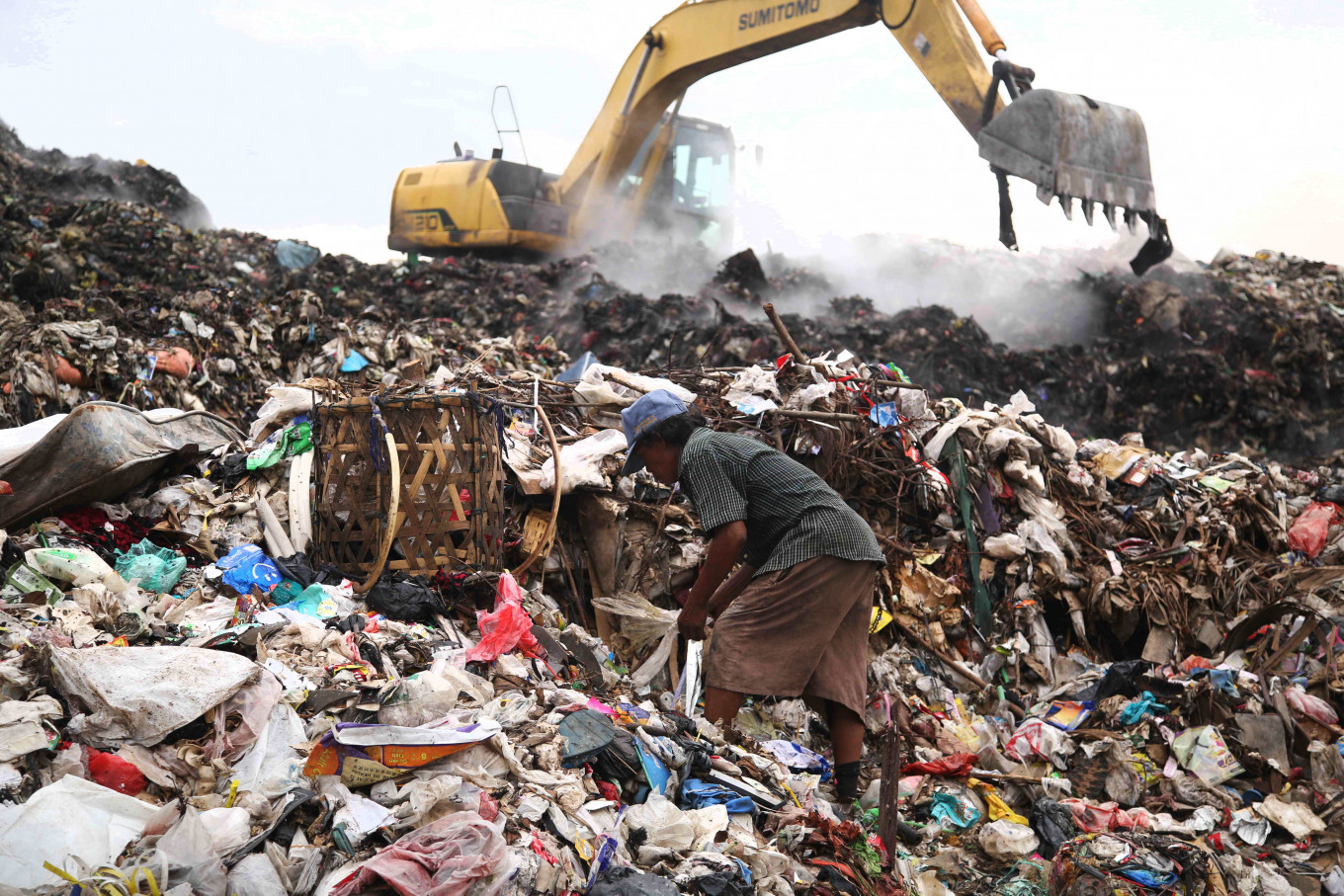Popular Reads
Top Results
Can't find what you're looking for?
View all search resultsPopular Reads
Top Results
Can't find what you're looking for?
View all search resultsOur waste, our problem
Greater Jakarta, with more than 30 million people, sends more than 14,000 tons of waste to the eight landfills every day.
Change text size
Gift Premium Articles
to Anyone
T
he image of Bantargebang landfill in Bekasi, West Java, is a well-known one. This is a vast facility that has for many years become the dump for the waste produced by the residents of Jakarta, totaling about 7,000 metric tons per day.
But Jakarta has morphed into an agglomeration of Greater Jakarta and there are seven other landfills that have turned into basic dumpsites that receive the solid waste from satellite cities: Bogor municipality and regency, Depok, Bekasi municipality and regency, all in West Java, and Tangerang municipality and regency and South Tangerang in Banten.
Greater Jakarta, with more than 30 million people, sends more than 14,000 tons of waste to the eight landfills every day.
The other dumpsites are no better than Bantargebang, perhaps even worse. While Bantargebang is set to become overloaded next year, Depok’s dumpsite, Cipayung, has been at overcapacity since 2013. Cipeucang, where South Tangerang dumps its waste; Rawa Kucing, for Tangerang municipality residents and Sumur Batu, which serves Bekasi municipality, are all estimated to be overburdened this year.
Our recent report showed how our waste affected the lives of those who live near these dumps.
Read also: Skyscraper of waste: Greater Jakarta drowning in mountains of trash
Arip Suparman, who lives near Rawa Kucing landfill has seen the trash grow and grow until it has reached the front of his house.
Komarudin, who lives near Burangkeng landfill, which serves Bekasi regency, now has to pay for clean water for his home. The groundwater from his family’s well is oily and smelly as a result of contamination by the waste.
The government and the regional administrations have been seeking a solution. Bogor municipality, Bogor regency, Depok and South Tangerang have pinned their hopes on a new landfill in Lulut-Nambo in Bogor regency. However, the facility has not yet opened because of a protracted payment dispute between the contractor and the investor. Adding to that dispute is the bickering among the four regencies and municipalities that want a greater trash quota than the others.
In 2018, the Public Works and Housing Ministry revitalized the Rawa Kucing landfill by making it a sanitary landfill, where the trash is compressed and buried in a pit with a protected bottom to allow it to decompose into biologically and chemically inert materials. Bantargebang landfill also operates a waste-to-energy plant and a composting facility.
All these innovations, however, cannot keep up with Greater Jakarta’s ever-increasing amount of waste. Environmentalists have also raised concerns about the problems arising from the waste-to-energy plant, claiming it is costly and dirty.
The waste sent to the landfills is mostly household waste, or in other words, our waste. It is definitely our problem, not other people’s.
As all our landfills face imminent overload, reducing our domestic waste is the least we can do to solve our mounting waste crisis. Greater Jakarta residents need to take part in this movement.
We can start at home by avoiding the use of disposable plastics, shopping only for what we need and eating all the food we have bought. Many community units have founded “waste banks”, where they can sell plastic and paper waste, and compost their kitchen waste.
Whatever effort you make to reduce waste, your contribution matters.










